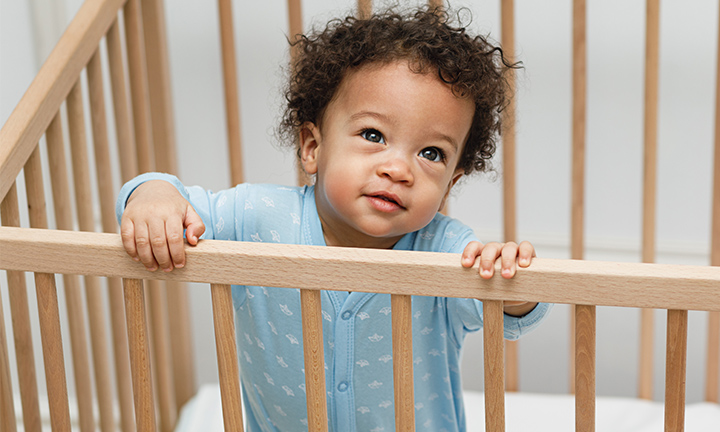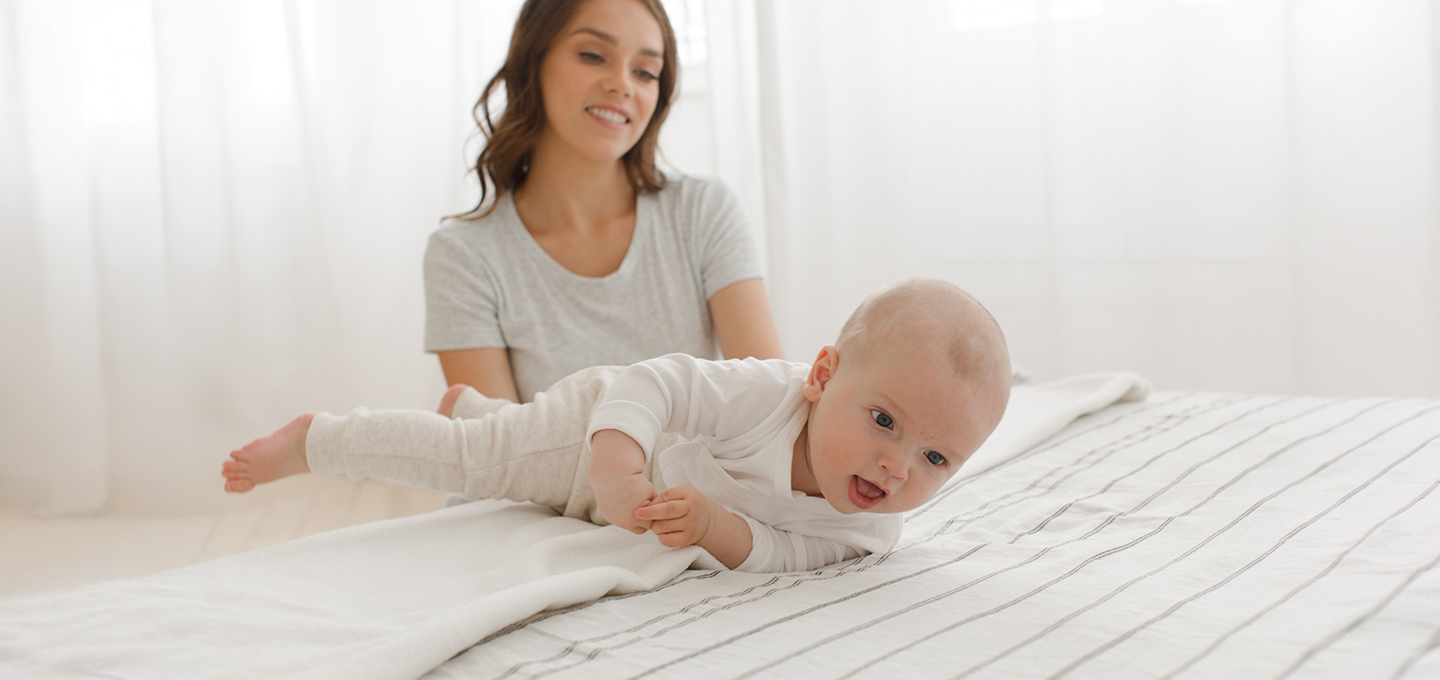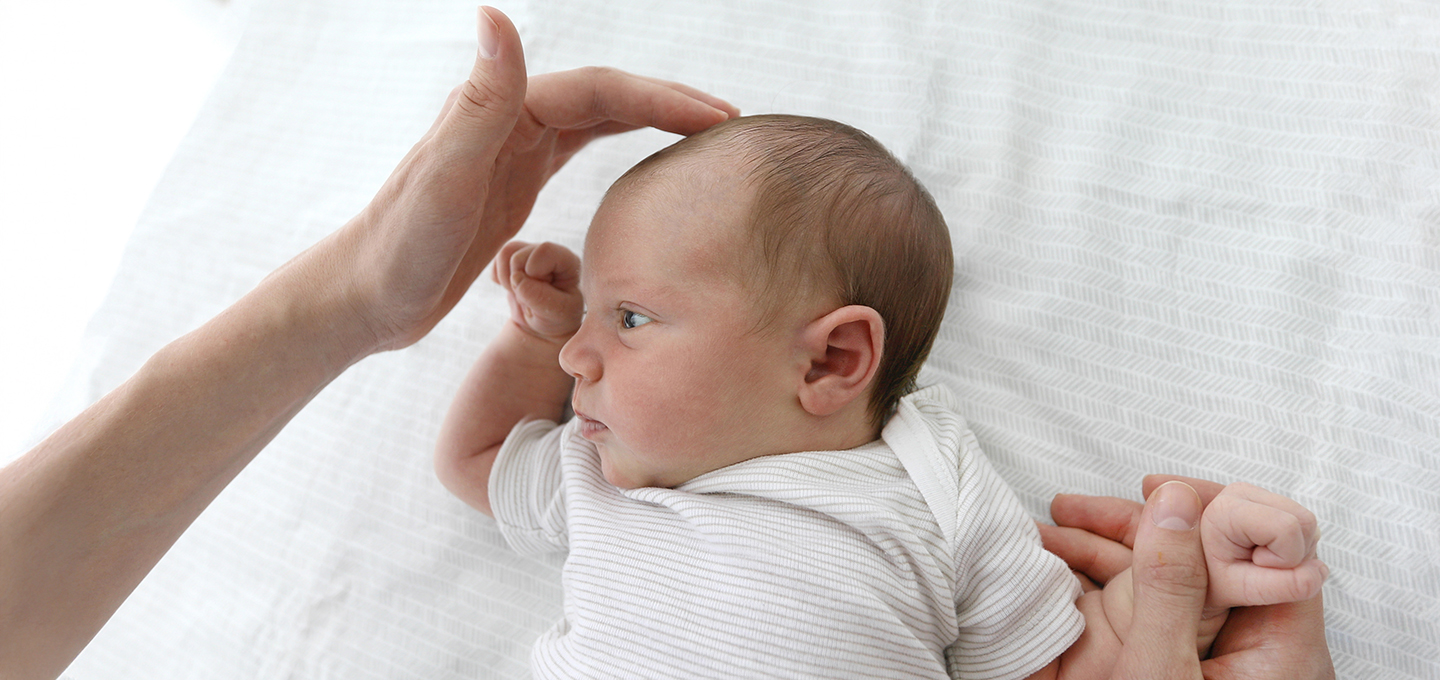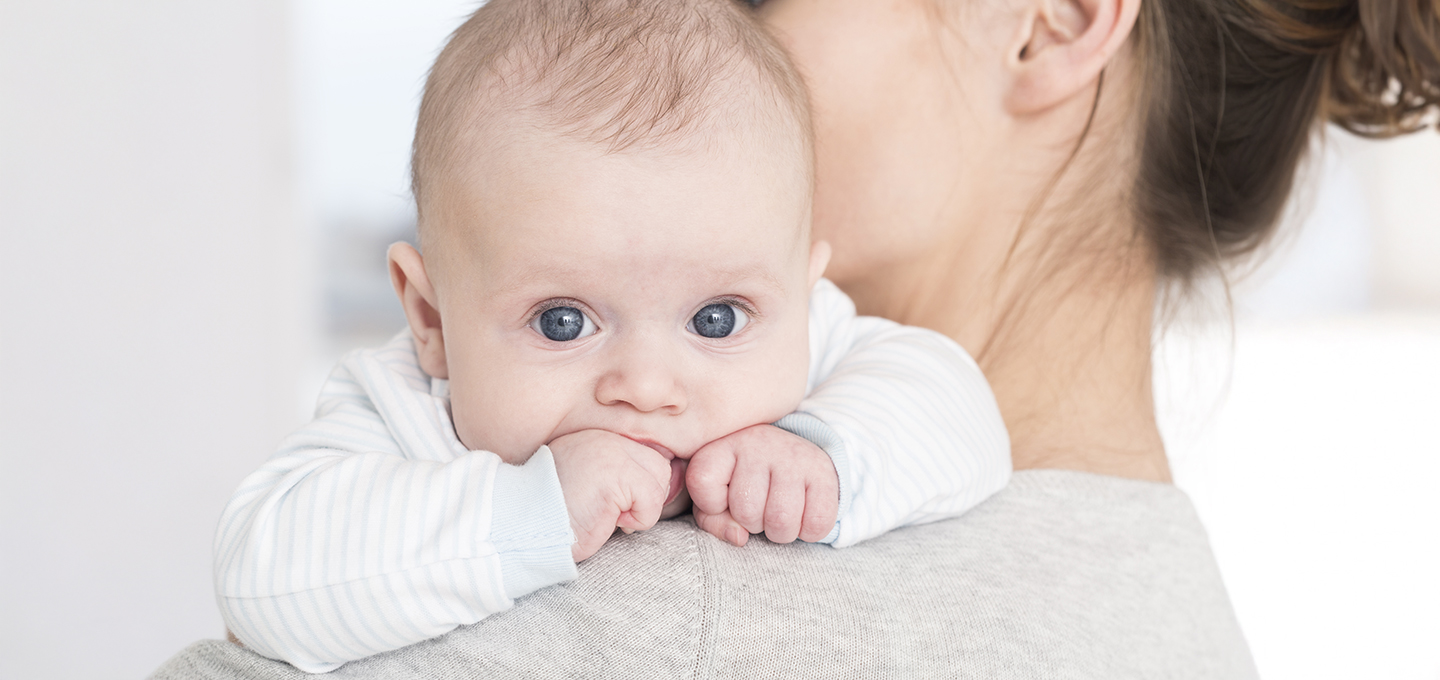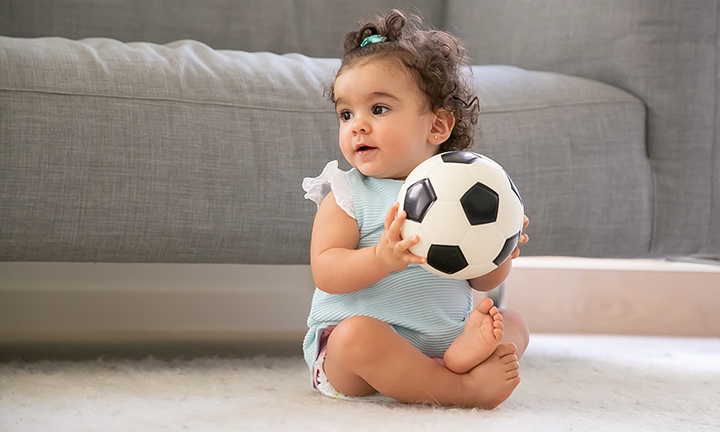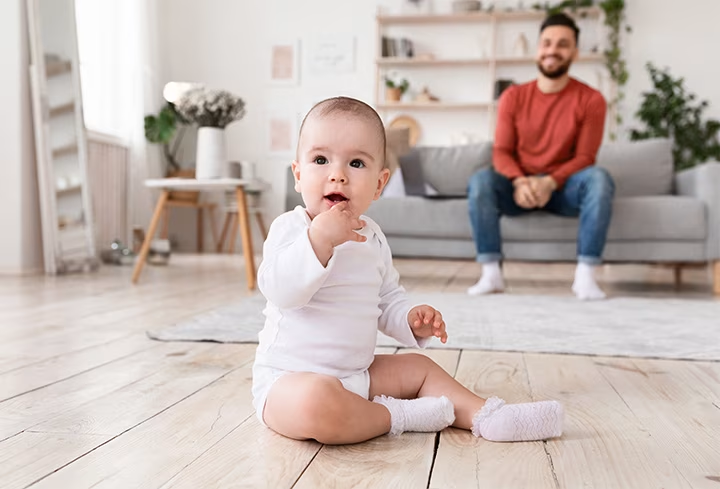
When Can Babies Sit Up By Themselves?
Key Takeaways
Wow, look at that! Your baby is growing and making developmental leaps right before your eyes. It can seem like just a minute ago that she was just a helpless little infant and now she’s getting more and more mobile and more independent. And, soon enough, your baby will reach the stage when babies are able to sit up all on their own. Find out when your baby might start sitting up first with your support and eventually alone and unassisted. Plus, discover how you can help your baby learn to sit up, and what comes next.
When Do Babies Start Sitting Up?
Your baby may be able to sit up with your support when positioned upright sometime between 6 and 8 months of age.
Then, around 8 or 9 months, your baby will likely learn to sit up without any support.
Keep in mind that every baby is different and develops at his own pace, so your little one may develop these abilities a little earlier or later than this.
What Are the Signs Your Baby Is Almost Ready to Sit Up?
When you place your baby in a seated position on the floor, for example, you may see her trying to tripod, which is when she leans forward while extending her arms to balance her upper body. This is one of the first signs that she’ll soon be able to sit up.
While in this tripod position, your baby is working on his balance. Soon he may be able to hold himself in a sitting posture when you place him upright with support, and eventually all on his own.
How Can You Help Your Baby Learn to Sit Up?
For your baby to be able to sit up on her own, she’ll need to develop strength and balance in her trunk, back, head, and neck.
Here are some of the things you can do to help your baby learn how to sit:
Eventually, your little one will be able to maneuver herself into a sitting posture without help from you and without the need to tripod. She may place her arms by her sides to support herself.
By about 9 months old, your baby may be able to play for an extended period while sitting upright on the floor. She’ll likely be able to pivot her torso to reach for toys.
In Summary
Daily tummy time with your close supervision helps your baby strengthen her back and neck muscles, strength that’s needed to sit up without support. Encourage her to look up and raise her head, neck, and chest during tummy time sessions by dangling toys or making funny faces and sounds. Eventually, your baby will be able to sit with back support; then she’ll use her hands to balance; and before long, your baby will be able to sit unassisted.
Can a 4-Month-Old Baby Sit Up?
A 4-month-old will most likely not be able to sit up. This skill is usually developed later on, typically between 6 and 8 months of age when she has the necessary muscle control and strength as well as the ability to maintain her balance.
Should a 6-Month-Old Baby Be Able to Sit Up?
A 6-month-old may be able to sit up, but for many babies it can take a little longer. Most babies are able sit up with support by 8 months of age, while sitting up unassisted takes a little longer.
Don’t be disappointed if your baby isn’t able to sit up just yet at 6 months old. Your baby is still very young, and building the necessary strength and coordination takes time.
Since every baby is different and develops at a different pace, your baby may take a little longer to develop the skill of sitting up. Keep practicing daily tummy time and your baby will get there soon enough!
Do Babies Crawl or Sit Up First?
Your baby will likely learn to sit up before being able to crawl.
The strength and balance needed to sit up with and without support is typically developed between 6 and 8 months of age, whereas the skill to crawl is typically developed between 7 and 10 months of age. Know that some babies skip the crawling stage altogether, finding other ways to get around like slithering along on their tummy or scooting along on their bottom!
Remember that each baby is different, and that your baby may develop certain skills a little sooner or later than what we’ve described here.
Before your baby learns to crawl, you may see the following skills and behavior:
All of this development mentioned above helps strengthen his muscles, which will be very important for eventually learning to stand and then take his first steps.
In Summary
Babies typically learn to sit up before they can crawl. The earliest your baby is likely to be able to start sitting up is about 6 months of age. Crawling typically happens between 7 and 10 months of age.
Safety Tips to Follow Before Babies Start Sitting Up
Around the time your baby is learning to sit up, it’s a good idea to have already finished or have made good progress on child-proofing your home because being able to sit up is a sure sign that your baby is getting more mobile.
Here are some safety tips that will be of particular importance to you as your baby learns how to sit up:
The Bottom Line
Sitting up is just one of the many development milestones you’ll see your baby achieve in the first year. Help your baby develop this skill by encouraging plenty of tummy time.
Don’t worry if your baby can’t sit up unassisted at 6 months old! The range for this development milestone is between 6 and 8 months of age, and every baby develops at his own pace.
Before you know it, your baby will be able to sit up with support and then a little later sit up unassisted. Then in the blink of an eye she’ll be standing, cruising, walking, and running!
Still, if you feel there may be a delay in this aspect of your little one’s development, speak to your baby’s healthcare provider for expert personalized advice.
Are you curious about learning more about your child's development? In the Pampers Rewards app, you can follow along with your child's month-by-month development while also earning Pampers Cash for all the diapers you buy. Just scan the diaper code, most boxes have two, earn $10 Pampers Cash after 10 diaper scans, and redeem for $$ off Pampers at one of your favorite retailers.
Read more about Baby
Related Articles
Join a World of Support
through Pregnancy and Parenthood.
TRACK WITH TOOLS
LEARN WITH EXPERTS
GET REWARDED





